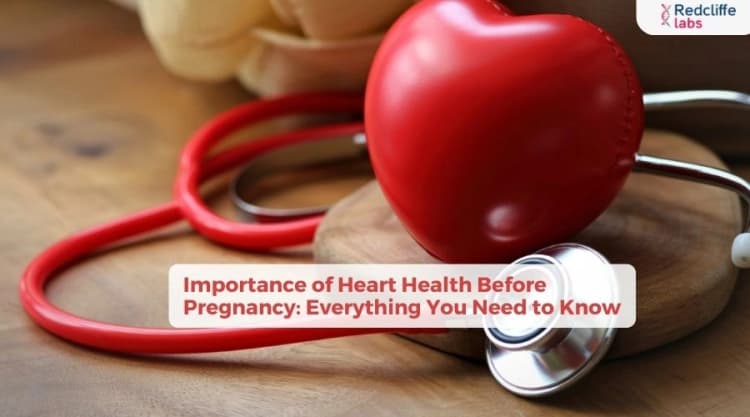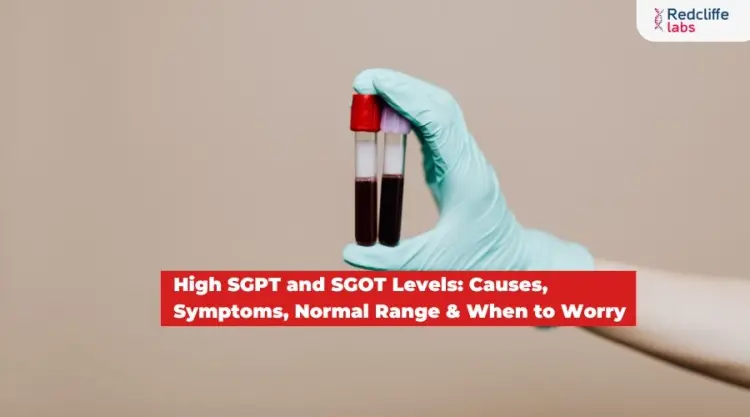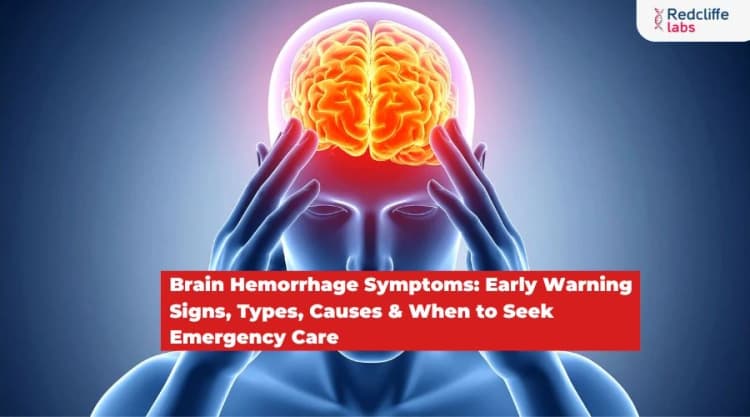Blood
Unlock special
discount on
this package
Login to Unlock 🔓
NABL Accredited lab*

Booking Benefits Unlocked Worth FREE 799

Report Consultation

Diet Plan
*Available once your report is generated.
At Redcliffe Labs, we have a single goal: to give India its right to quality diagnostics.
Customers served
Tests Processed Everyday
Cities
Collection Centres
World Class In-house Labs
Home Collection Experts
1 Test Parameters
Hepatitis B Surface Antigen (HBsAg), Qualitative
1 PARAMETER INCLUDED
1 PARAMETER INCLUDED
- Hepatitis B Surface Antigen (HBsAg), Quantitative
Helps you know your test better
Who should take the Hepatitis B Surface Antigen Test?
- Individuals who have been exposed to the Hepatitis B virus or are at higher risk of getting infected should take the Hepatitis B Surface Antigen Test.
Why take the Hepatitis B Surface Antigen Test?
- Your healthcare practitioner may ask you to take the Hepatitis B Surface Antigen Test to diagnose or monitor a current or past Hepatitis B virus infection.
What are the benefits of the Hepatitis B Surface Antigen Test?
- The test allows early detection of the hepatitis B virus, leading to prompt treatment to prevent transmission to others and avoid complications. Additionally, it checks the infection progression & assesses the effectiveness of the treatment.
Top Booked Health Checkup Packages
Reports in 12 hours
|Parameters 94
Reports in 12 hours
|Parameters 89
Reports in 12 hours
|Parameters 96
Reports in 12 hours
|Parameters 96
Reports in 12 hours
|Parameters 90
Verified by Medical Expert

MEDICALLY REVIEWED BY
Dr. Himani Pandey

WRITTEN BY
Anjali Dubey
Table of Content
Introduction to the HbsAg Test
The full form of HBsAg is Hepatitis B Surface Antigen. It is a protein on the surface of hepatitis B virus (HBV). HBsAg is the earliest sign of HBV infection and can be detected within weeks of exposure. The infection appears between the 1st to 12th weeks after exposure. However, you can also notice the signs in the 2nd week, before the onset of clinical symptoms.
Hepatitis B is a major health issue in India, contributing 11% of the global burden and affecting around 40 million people in India.
Did you know HBV infection also contributes to:
- 42% of acute and subacute liver failure
- 70% of cases of chronic hepatitis
- 80% of cases of cirrhosis of the liver.
- About 60% of people with hepatocellular carcinoma are HBV marker-positive.
The good part is that the HBsAg test can screen for HBsAg infection in the blood to prevent transmission. Therefore, don’t ignore signs and get yourself tested by Redcliffe Labs.
How is HBV Infection Transmitted?
- HBV spreads through unsafe injection practices and body fluids like saliva, blood, semen, and vaginal fluids.
- It can also spread from a mother to her baby.
- It can spread by needlestick injury, piercing, or tattooing.
- HBV can also spread through the reuse of contaminated needles, syringes, or sharp objects among people who inject drugs or in healthcare settings.
- Having intercourse with a non-vaccinated person or with multiple partners.
Test Details:
| Also Known As | HBsAg Rapid Test, Hepatitis B Antigen Test, HBV Surface Antigen Rapid Test, HBsAg Test, Rapid HBsAg Test |
| Purpose | To Determine if the person has been infected with the Hepatitis Virus |
| Preparation | Refrain from drinking alcohol or smoking before the test |
| Fasting | No Fasting Required |
| Get Reports Within | 12 hours |
| Cost | INR 999 |
Purpose of the HBsAg Test
The purpose of the HBSAg test is to detect the presence of the hepatitis B virus (HBV) in the blood. This test helps in the following cases: -
- It helps to identify active HBV infection in individuals.
- The test helps detect chronic carriers of the virus, who may not show symptoms but can spread the infection.
- If you are undergoing any treatment for hepatitis B then it helps in evaluating how well the current treatment is working.
- It helps in preventing the transmission of hepatitis B from mother to child during childbirth.
- The test ensures safe blood donations by detecting HBV in potential donors.
The HBSAg test is essential for the early detection, management, and prevention of hepatitis B.
What is the HBsAg test Used For?
The HBsAg blood test is used for:
- Screening for hepatitis B infection in people who either have symptoms linked with liver disease or have been exposed to HBV infection.
- Monitoring people with risk factors for developing the HBV infection.
What Does the HBsAg Test Measure?
The HBsAg test detects the Hepatitis B Surface Antigen infection (HBsAg) in the blood. It is the first serological marker in the blood after exposure to Hepatitis B infection.
The presence of more than six months of HBsAg showcases chronic HBV infection, leading to liver damage. A person with a chronic infection may spread it to others.
Advantages of the HBsAg Test
The following are the benefits of the HBsAg test.
- The test can detect if you have hepatitis B infection.
- Timely detection helps doctors plan the right treatment to manage the condition and prevent complications.
- It can identify chronic infection, helping plan the treatment and management to control its spread.
- It can track the infection's progression, worsening, and how well the treatment is performing.
- Early detection can prevent the spread of hepatitis B infection by taking necessary precautions.
HBsAg Test in Pregnancy
The HBsAg test screens for Hepatitis B infection during pregnancy. Health experts usually recommend it to all pregnant women during their first prenatal visit, but it is also useful for various reasons.
- The test can prevent the transmission of Hepatitis B to the baby.
- It can prevent chronic hepatitis B infection in the baby.
- It can help your healthcare professional decide whether to give the baby the Hepatitis B vaccine and Hepatitis B Immunoglobulin (HBIG) at birth.
When to get the HBsAg Test Done?
The symptoms of Hepatitis B may vary depending on how acute or chronic the condition might be, but this does not mean that one can ignore the signs and not get tested. It does not take time for something acute to become chronic, so get tested and start your medication as soon as possible. Here are some of the symptoms of both chronic and acute Hepatitis B:
Acute Hepatitis B Symptoms:
- Jaundice (yellowing of the skin and eyes)
- Fatigue
- Abdominal pain
- Dark urine
- Nausea and vomiting
- Loss of appetite
Chronic Hepatitis B Symptoms:
- Often asymptomatic for years
- Persistent fatigue
- Right upper quadrant abdominal pain
- Joint pain
- Liver cirrhosis and liver cancer (in severe cases)
Jaundice (in advanced cases)
According to the WHO, acute Hepatitis is curable, but if someone has chronic hepatitis and doesn't get a proper diagnosis or treatment, it can turn fatal. This is why it is always recommended that you get your HBsAg Test done if there are acute or chronic conditions or symptoms.
Common symptoms of HBsAg infection include:
- Fever
- Loss of appetite
- Stomach pain
- Joint pain
- Dark-colored urine
- Light-colored stool
- Nausea and vomiting
- Swelling
- Confusion
Who should take the Hepatitis B test?
The Doctor sometimes tests certain healthy people for hepatitis B. Screening is done because HBC can damage the liver before the infection starts causing symptoms. Consult your doctor if you require screening for hepatitis B. And you should take the Hepatitis B test if: -
- You Are Pregnant
- You Live with someone who has hepatitis B
- You have had many sexual partners
- You had sex with someone who has hepatitis B
- You have received kidney dialysis
- You use injected street foods
- You Were born in a country where hepatitis B is common.
- You have your parents or kids from places where Hepatitis B is common, such as Asia and Africa
Who is at risk of developing the HBsAg test?
Symptoms show the right time for taking the HBsAg test. However, certain people are at risk, irrespective of age, gender, and color.
- People with a history of STDs or had multiple partners
- People with a past HCV infection
- Babies born with HBsAg-positive
- People who have formerly been incarcerated in jail or prison
- People who took the drug infection
- People with HIV infection
- Men who have intercourse with men
- People born in the region
Other people who are at risk:
- Blood donors
- Pregnant women
- Healthcare workers
- Intravenous drug abusers
- Institutionalized people
- Transplant donors and recipients
- Donors of semen for artificial insemination
- People who have a history of a sexually transmitted infection (STI)
- People who have hepatitis C or HIV.
- People who received kidney dialysis.
- People who have a liver enzyme test with irregular results that can't be explained
- People who live with someone who has hepatitis B.
- People born in countries where hepatitis B is common including Africa, Asia, Eastern Europe, and the Pacific Islands.
- People who have adopted children or parents from countries where hepatitis B is common.
Preparations Before the HBsAg Test:
No special set of rules must be followed before taking the HBsAg blood test. However, these are some basic guidelines to be followed:
- You are not required to fast before taking the HBsAg test, but if your health requires it, talk to your physician about any special dietary requirements.
- If you are pregnant, you might be taking any medication or supplements. It is important to inform your doctor about that as well. You do not have to panic in such situations; they will also tell you the solution if they think there is an issue.
- It is a blood test, so avoiding any workouts or yoga before taking the test is always recommended.
- It is always advised that you skip smoking or drinking alcohol before taking the test because there are high chances that it may alter your test results, and you will not be able to get accurate test results.
Following the above steps, you will be fine while getting tested, and no exceptional preparation will be required before the blood test.
The procedure for the HBsAg test:
This HBsAg test is like any other blood test; it does not take more than 5-10 minutes for the phlebotomist to take the blood sample. The procedure for getting the test is as follows:
- The phlebotomist, on arrival, tells you to make a fist and ties a band around your arm.
- They tell you to make a fist so the veins are properly visible.
- They disinfect the area from which the blood is to be drawn.
- Then, a thin, sterile needle is inserted into the vein to draw blood, and after the needle is removed, a bandage is put on the punctured area.
- After drawing the blood, they put it in a vial, seal it, and label it.
- This vial is then taken to the laboratory to be tested.
Keep in mind that this is not a painful process. It may sting when the syringe is injected, and blood is drawn from the body, but that is about it. This sensation goes away in a day or two, so if you are experiencing the pain or the sting for a longer period, you must consult your doctor to find out what is wrong.
Risks Associated with the HBsAg Test
The HBsAg test has no major risk. It is a blood test that can cause:
- Slight pain
- Excessive bleeding
- Bruises
- Weakness
- Hematoma
- Lightheadedness
- Fatigue
How to Prevent Hepatitis B?
Preventing Hepatitis B is crucial and highly achievable through various methods:
- Vaccination: The Hepatitis B vaccine is safe, effective, and the best way to prevent infection. It is typically given in a series of three or four shots.
- Safe Sex Practices: Use condoms and ensure mutual monogamy with a partner who is not infected.
- Avoid Sharing Needles: Use only sterile needles and syringes for injections.
- Personal Hygiene: Avoid sharing personal items, such as razors or toothbrushes, that might have blood on them.
Yes, you can prevent Hepatitis, a disease impacting millions of people, by following these few tips. Remember that Hepatitis can be prevented, and these are some ways to do so.
Understanding the HBsAg Test Results
HBsAg test results can be interpreted in two ways: a positive or negative result, which determines whether you are infected with the Hepatitis B virus.
The HBsAg test normal range is between 0.5 and 250 IU/mL (international unit per milliliter). If your HBsAg Test result is above 250, you may have hepatitis B.
An inactive infection or an HBsAg test negative means you have the virus, but it's not severe and can become active later.
An active or chronic infection means the virus is present in your blood for more than six months, and it can cause serious health issues like liver cancer and cirrhosis.
Can a Healthcare Professional Recommend Further Testing?
Yes, a healthcare professional may recommend further tests, like the Anti-HBsAg test, to figure out if it's an active or inactive infection. Besides, they may suggest further testing, such as:
- HBeAg (hepatitis B e-antigen)
- IgM anti-HBC
- IgG anti-HBC
- HBcAb total
Treatment for the HBsAg Infection
The acute infection often goes away on its own in some time, and you might not need treatment. However, a healthcare professional might recommend rest, proper nutrition, drinking plenty of fluids, and close monitoring while your body fights against infection.
You may need a medical consultation or antiviral medications to prevent complications if your symptoms are severe. Otherwise, the treatment depends on the following factors:
- You have other infections, such as HIV or hepatitis C.
- The virus is causing liver inflammation or cirrhosis.
- Medicine or illness weakens your immune system.
The HBsAg infection can spread from mother to child during childbirth, therefore, babies should receive the hepatitis B vaccine within 24 hours of birth. It is followed by two or three doses of vaccine given at least four weeks apart.
Analyzing all these factors, your healthcare professional may plan for treatment, including antiviral medicines, interferon shots, and a liver transplant.
Treatment to prevent Hepatitis B
To prevent Hepatitis B Virus (HBC) infection, the following treatment and preventive measures are recommended-
- Hepatitis B Vaccination: Vaccination is one of the most effective ways to prevent HBV infection. It is recommended for newborns and people at high risk.
- Hepatitis B Immune Globulin (HBIG)- Provides temporary protection against HBV and is used for unvaccinated individuals exposed to HBV, such as through needle sticks or birth.
- Antiviral medications—For people with chronic HBV, antiviral drugs like Entecavir, Tenofovir, or interferon are used to manage the infection and lower the risk of liver complications.
- Safe practices to prevent transmission- Avoid sharing needles or personal items and use condoms during sexual activity.
- To prevent perinatal transmission - Pregnant women should be tested for HBV. If positive, the newborns should receive the first dose of the HBV vaccine within 12 hours of birth.
Lifestyle and home remedies for Hepatitis B
Hepatitis B is a liver infection caused by the Hepatitis B (HBV) virus, but it can be managed with lifestyle and home remedies. Here is how your lifestyle supports your liver health and reduces complications.
- Avoid alcohol and drugs- Stop alcohol consumption and consult your doctor before taking any medications or supplements, as some can harm the liver.
- Practice Safe Hygiene- Avoid sharing personal items like razors, toothbrushes, or needles to reduce the risk of spreading or contracting other infections.
- Get Tested—Get yourself tested with routine checkups and blood tests to monitor your liver function. Discuss any symptoms or concerns with your doctors to address potential complications early.
Table Explaining the HBsAg Test Results
Understanding the HBsAg test result is important for you, too. The test result includes HBsAg, total anti-HBc, IgM anti-HBc, and anti-HBs. The Centers for Disease Control and Prevention (CDC) provides comprehensive test results to determine whether you have acute or chronic HBV infection.
| Test Result | Understanding | What To Do? |
| Positive- HBsAg Positive- Total anti-HBc Positive- IgM anti-HBc Negative- Anti-HBs | Acute infection | Take hepatitis B care |
| Positive- HBsAg Positive- Total anti-HBc Negative- IgM anti-HBc Negative- Anti-HBs | Chronic infection | Take Hepatitis B care |
| Negative- HBsAg Negative- Total anti-HBc Positive- Anti-HBs | Resolved infection | Consult your doctor about the risk of recurrence |
| Negative- HBsAg Positive- Total anti-HBc Negative- Anti-HBs | Only the core antibody is positive. | Take possible action after the doctor's recommendation. |
| Resolved infection | Counsel risk of reactivation of HBV infection | |
| Occult infection | Take hepatitis B care. | |
| Pass infection to the infant because of the parent’s positive gestational parent. | No action | |
| False positive | Take HepB vaccine as per ACIP. | |
| Mutant HBsAg is not detected | Take hepatitis B care | |
| Negative- HBsAg Negative- Total anti-HBc Negative- Anti-HBs | Suspicion of infection or never infected | Take HepB vaccine as per ACIP recommendation |
How to Treat Hepatitis B?
The treatment methods depend on whether the infection is acute or chronic.
Acute Hepatitis B:
Often, no specific treatment is needed. Rest, adequate nutrition, and fluids are usually sufficient.
Monitoring by a healthcare provider is essential.
Chronic Hepatitis B:
Antiviral medications can help manage the Hepatitis virus and reduce the risk of liver damage.
Regular monitoring of liver health and viral load.
In severe cases, the doctor may recommend a liver transplant.
As mentioned before, according to the WHO, the person suffering from chronic Hepatitis B is at high risk of developing Liver disease or liver cancer, which is fatal, so it is recommended that one gets tested when there is time so that the treatment can be started within time.
Tips for Living with Hepatitis B?
Managing Hepatitis B involves regular medical care and lifestyle changes to protect the liver. This includes:
- Alcohol is known to be harmful to the body, so if you are diagnosed with Hepatitis B, you should avoid drinking at all costs.
- Certain medications can impact your liver, and for a person suffering from Hepatitis B, the organ that is at most risk is the kidney, so talk to your doctor and get yourself alternate medication.
- Eating a healthy diet.
- Getting regular exercise.
- Keeping up with vaccinations and routine medical check-ups.
If you have been diagnosed with Hepatitis B and are receiving treatment, these few tips can help you go about your life, enhance your possibility of healing faster, and make your battle with Hepatitis B easier.
HBsAg Test Price
You can get your HBsAg Test done at Redcliffe Labs. The HBsAg test price at our labs is INR 999. The price may differ from lab to lab, so you should research before booking the test. However, at Redcliffe Labs, we keep the prices as minimal as possible to make them affordable. To make it more convenient, we provide home sample collection services so you can get yourself tested from the comfort of your home. So don't wait—get yourself tested by Healthy India ki Trusted Lab.

Hbsag Test Cost in Different Cities - Redcliffe Labs
| City Name | Discounted Price |
| Delhi | ₹999 |
| Ahmedabad | ₹999 |
| Mumbai | ₹999 |
| Bangalore | ₹999 |
| Noida | ₹999 |
| Pune | ₹999 |
| Lucknow | ₹999 |
| Hyderabad | ₹999 |
| Chennai | ₹999 |
| Gurgaon | ₹999 |
| Jaipur | ₹999 |
| Faridabad | ₹999 |
| Indore | ₹999 |
| Patna | ₹999 |
Note: We also offer HBsAg Test PAN India. Please call the number 8988988787 to check the availability of our services in your area.
5 Simple Steps to Manage Your Health with Redcliffe Labs
Quick, Simple & Convenient; trusted care delivered to your doorstep.

Start Your Online Booking
Open the Redcliffe Labs website/app. Select the test or package and enter your details. Schedule the service for your preferred slot.

Live Tracking
Stay updated with real-time tracking for a smooth and timely home sample collection.

Sample Collection
Our certified experts ensure a smooth, hygienic, and fully compliant sample collection experience.

Doctor-Verified Smart Reports
Every report is clinically checked by expert doctors and shared with smart, actionable insights.

Your Health Journey Continues Post Reports
Consult with our expert medical team to get actionable insights to improve your health.
Nearby Labs(9)
Redcliffe Labs Noida

MC-5280
Redcliffe Collection Center
Redcliffe Collection Center
Redcliffe Collection Center
Redcliffe Collection Center
Redcliffe Collection Center
Redcliffe Collection Center
Redcliffe Collection Center
Redcliffe Collection Center
Frequently Asked Questions
What is the HBsAg test?
What is the price of the HBsAg test?
Why is the HBsAg test done?
What is the HBsAg test in pregnancy?
Is fasting required for the HBsAg test?
How is the HBsAg test done?
What is a normal HBsAg level?
What does HBsAg 150 mean?
Is the HBsAg test accurate?
What are the symptoms of HBsAg?
Can I book a Hepatitis B Surface Antigen (HBsAg), Qualitative Test near me?
Can I book a home collection for a Hepatitis B Surface Antigen (HBsAg), Qualitative Test?
Health Articles & Blogs
My Health
Stay informed with our expert health articles and blogs. Explore comprehensive guides on diseases, nutrition, preventive care, and wellness tips to help you make better health decisions.
Why is PCOS Continuously Rising in Women?

10 Healthy Holi Recipes for Your Fitness Goals in 2026
Looking for healthy Holi recipes? Discover 10 festive dishes that support your fitness goals while keeping celebrations delicious.

Importance of Heart Health Before Pregnancy: Everything You Need to Know

Migraine Treatment at Home: Effective Ways to Relieve Migraines Naturally

High SGPT and SGOT Levels: Causes, Symptoms, Normal Range & When to Worry

Brain Hemorrhage Symptoms: Early Warning Signs, Types, Causes & When to Seek Emergency Care

What is SGPT in Blood Reports? Everything You Need to Know

Capsicum (Shimla Mirch) 101: Benefits, Nutritional Value, Uses and More
Explore My Health
